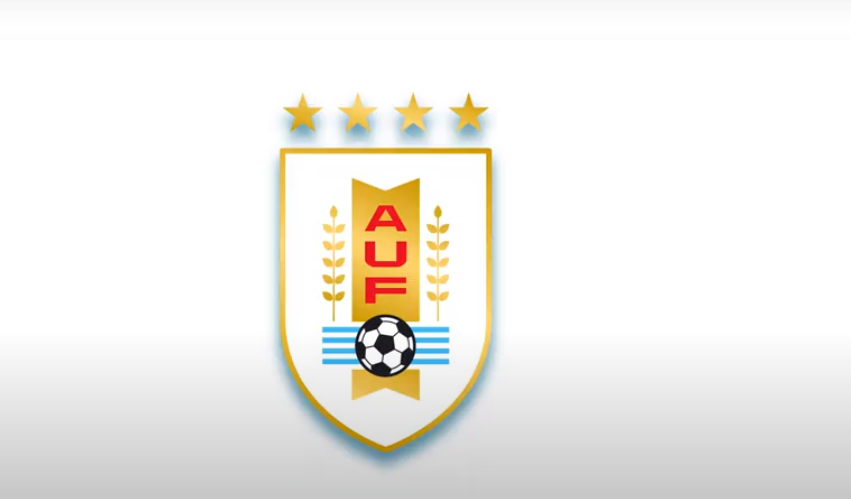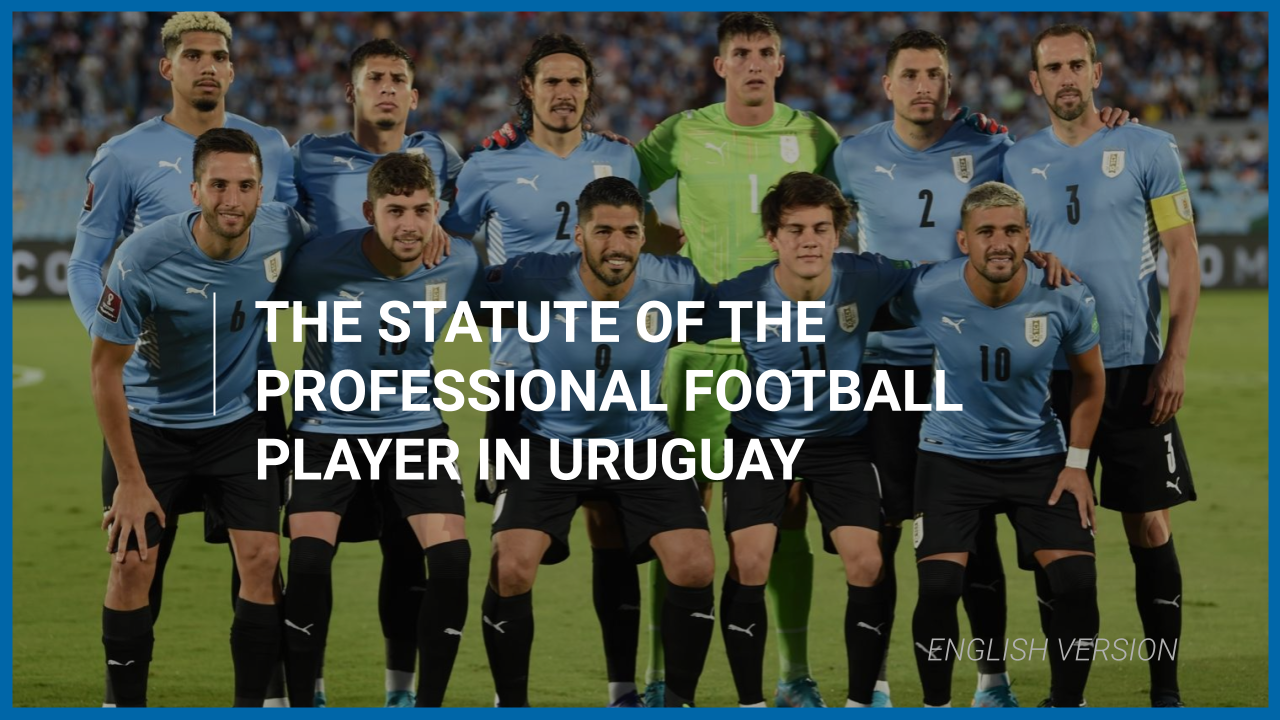Published and translated by the firm Winter – Dávila & Associés
Paris, 3 July 2023
Introduction
The main norm that regulates the labour relations between football players and professional clubs in Uruguay is the Statute of the Professional Football Player (EJFP), a collective agreement agreed between the Uruguayan Football Association (AUF) on behalf of the football clubs and the Uruguayan Mutual of Professional Football Players (MUFP) on behalf of the players. The “Mutual” is the union that brings together the footballers who play in Uruguayan football and was founded in 1946.
The first statute – collective agreement – dates back to 1974, it has had successive reforms with which the players have been gaining rights and at the same time the regulations have been adjusted to the dynamics and updating of the football world. Currently, the current Statute was last reformed in 2007 and consists of 49 articles divided into 10 chapters.
In Uruguay, the Tribunal Arbitral of Professional Football (Tribunal Arbitral del Futbol Profesional), which in other places would be an arbitration chamber for the resolution of disputes, has jurisdiction over labour disputes between professional football players and clubs. The tribunal functions physically on the premises of the Association, is composed of three representatives appointed by the AUF, three by the MUFP and a President elected by common agreement among all members, and is regulated in the EJFP itself as well as in the General Regulations of the AUF.
YOU CAN ALSO READ:The statute of the professional soccer player in Peru
Statute of the Professional Football Player
In order to make a practical and brief analysis of this regulation, we will highlight the most relevant points of the document in order to get a clearer idea of what is regulated.
I- General Dispositions:
Chapter I expressly establishes that the present Statute is the maximum hierarchy norm that regulates the labour relations between football players and clubs for which the regulations, resolutions or similar of unilateral character, as well as the agreements between third parties that affect the same or collide with it, will be null and void.
Chapter II establishes the requirements for professional teams, including the obligation to register contracts with players as an essential requirement.
Chapter IV establishes the obligations of the parties, in general terms that the minimum conditions for the performance of the profession are fulfilled and on the part of the players the fulfilment of the contracts and internal regulations as well as training and medical check-ups.

II- Contracts:
In no case shall contracts extend for a period longer than five (5) years and shall extend at least until the end of the season in which they are entered into. Contracts of players under eighteen years of age shall not extend for a period of more than three (3) years.
The salary of football players who have signed a contract with a club for more than one year shall be increased annually in accordance with the CPI (Consumer Price Index).
Without prejudice of not having a registered contract, any football player who is called by the club to train outside the contractual period established in the contract, shall be entitled to receive his salary, when it is verified by any reliable means his effective presence at the club’s order.
Private agreements signed between the parties are recognised and regulated, without prejudice to the validity of the clauses agreed in the registered contracts.
III. Economic Regime:
Article 12 establishes Minimum Remunerations for footballers playing in the First Professional Division and Second Professional Division, which are readjusted on 1 August of each year. Institutions that fail to comply with the provisions of this article shall be automatically disqualified from continuing to participate in the tournament, phase or similar event that is taking place.
In the event of unilateral termination of the contract by the club, the player shall be entitled to claim the full amount due for the remaining contractual period.
Professional footballers who, during the course of a season, play in less than ten percent of the official matches played by their club in any category, may choose to prematurely terminate their contract without being liable to pay compensation to the institution.
Article 22 states that a player who for two consecutive months or three alternating months does not receive the minimum salary established may opt to be released, without prejudice to his right to the collection of the salary owed to him until such time as the salary is paid.
Professional football players may submit their financial claims to the Arbitration Tribunal at any time. Decisions issued shall only be subject to appeal for clarification and extension. Financial claims for any reason whatsoever between clubs and players shall lapse one year after the termination of the contractual relationship.
Articles that have been agreed as measures guaranteeing compliance with the salary: Article 26. Clubs may not start any official tournament, phases, rounds or similar, maintaining debts with footballers for whose claims there are favourable rulings and Article 27. Clubs may not receive transfers as long as they maintain debts with players for whose claims there are favourable rulings.
IV- Licence and Rest:
It is established that footballers shall enjoy an annual paid leave period of 20 working days, which by mutual agreement may be split into two periods of 10 (ten) working days each. The leave of absence shall be simultaneous for the entire squad.
The leave or, failing that, one of its fractions shall begin to be taken on 22 December of each year.
Football players shall have a weekly rest period of not less than 24 (twenty-four) consecutive hours, and 1 May of each year is expressly established as a non-working paid holiday.
YOU CAN ALSO READ: Training compensation in football
V- Injury and death insurance.
The regulation establishes an Insurance for death of the football player, Insurance for permanent disability and Insurance for temporary disability, for the football players that on occasion or as a consequence of the fulfilment of their profession both in the service of the club and the National Teams suffer such a circumstance.
It regulates the creation of a Medical Board composed of three specialists, whose task will be to determine the degree of injury or incapacity suffered by the players. The members will be appointed, one by the contracting club, another by the Mutual and a third by the AUF for each particular case.
In the event that the injury suffered by the player is of a temporary nature, the contracting club shall strictly and fully comply with the commitments agreed with the same, being considered for these purposes that the player continues to integrate the team of the division he was playing in at the time of injury, and until the club’s doctor declares him fit to return to official activity or the player enters into a new contract with another institution.
Conclusions
The Statute of the Football Player in Uruguay has a long history in comparison with other realities in Latin America, which has allowed the creation of an interesting and broad regulatory framework where a large part of the needs of the system are met. However, there are basic rights of football players that in other countries are contemplated and are not contained in the Uruguayan regulations, on the other hand, the professionalisation of modern football needs to update regulations and requirements for the growth of the professional activity. Nowadays it is notorious the need to reform the collective bargaining agreement again, which is currently being worked on, but all this will be a matter of a future publication.
LEGAL NOTICE: This article has been prepared for informational purposes only. It is not a substitute for legal advice directed to particular circumstances. You should not take or refrain from taking any legal action based on the information contained without first seeking professional, individualized advice based on your own circumstances. The hiring of a lawyer is an important decision that should not be based solely on advertisements.
Bibliography:
-Estatuto del Jugador de Futbol Profesional Uruguay
-Reglamento General de la Asociación Uruguaya de Fútbol
-Reglamento sobre el Estatuto y la Transferencia de Jugadores de FIFA
If you want advice related to the subject of the article, do not hesitate to contact us! (email: contact@wdassocies.com)





Leave A Comment